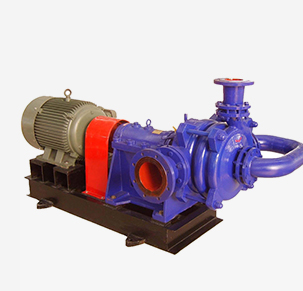TEL:
+86 13120555503
Albanian
- Afrikaans
- Albanian
- Amharic
- Arabic
- Armenian
- Azerbaijani
- Basque
- Belarusian
- Bengali
- Bosnian
- Bulgarian
- Catalan
- Cebuano
- Corsican
- Croatian
- Czech
- Danish
- Dutch
- English
- Esperanto
- Estonian
- Finnish
- French
- Frisian
- Galician
- Georgian
- German
- Greek
- Gujarati
- Haitian Creole
- hausa
- hawaiian
- Hebrew
- Hindi
- Miao
- Hungarian
- Icelandic
- igbo
- Indonesian
- irish
- Italian
- Japanese
- Javanese
- Kannada
- kazakh
- Khmer
- Rwandese
- Korean
- Kurdish
- Kyrgyz
- Lao
- Latin
- Latvian
- Lithuanian
- Luxembourgish
- Macedonian
- Malgashi
- Malay
- Malayalam
- Maltese
- Maori
- Marathi
- Mongolian
- Myanmar
- Nepali
- Norwegian
- Norwegian
- Occitan
- Pashto
- Persian
- Polish
- Portuguese
- Punjabi
- Romanian
- Russian
- Samoan
- Scottish Gaelic
- Serbian
- Sesotho
- Shona
- Sindhi
- Sinhala
- Slovak
- Slovenian
- Somali
- Spanish
- Sundanese
- Swahili
- Swedish
- Tagalog
- Tajik
- Tamil
- Tatar
- Telugu
- Thai
- Turkish
- Turkmen
- Ukrainian
- Urdu
- Uighur
- Uzbek
- Vietnamese
- Welsh
- Bantu
- Yiddish
- Yoruba
- Zulu
Telephone: +86 13120555503
Email: frank@cypump.com
Shk . 18, 2025 04:04 Back to list
sewer ejector pump system
An effective sewer ejector pump system plays a pivotal role in many homes and commercial spaces, ensuring that wastewater is efficiently managed even in challenging plumbing scenarios. These systems are essential in environments where gravity alone does not suffice, particularly in basements or other below-ground locations that cannot access the main sewer lines naturally. Understanding the components, benefits, and maintenance of these systems can empower homeowners and businesses to make informed decisions and uphold optimal function.
Trustworthiness arises from regular maintenance and timely intervention. Routine inspections play a crucial role in ensuring system integrity. These inspections might include checking the pump's float switch, motor, and basin for any signs of wear or obstruction. Moreover, cleaning the pump and pit at least twice a year is recommended to prevent malfunctions. In scenarios where the pump fails, a manual bypass or an alternate emergency solution should be in place to avert any potential flooding or sanitation issues. Investing in high-rated products from reputable manufacturers can further authenticate reliability. Brands that hold industry certifications and have a strong track record of performance and customer support often provide peace of mind, reducing the likelihood of breakdowns and extending the lifespan of the equipment. Another critical factor contributing to the system's reliability is a properly designed installation. Engaging a certified plumbing professional to assess, design, and install the pump system ensures that all technical aspects, such as size, location, and power supply, are meticulously accounted for and properly implemented. In conclusion, a sewer ejector pump system is an essential investment for properties below the main sewer line. Its effectiveness not only safeguards against wastewater complications but also enhances the value and functionality of the property. By focusing on the expertise in selecting the right system, ensuring authoritative construction, performing regular maintenance, and relying on trustworthy brands, homeowners and businesses can rely on their sewage systems for years of trouble-free operation. With these considerations, property managers and homeowners can confidently navigate the complexities of sewage management and ensure a clean, efficient, and environmentally responsible operation.


Trustworthiness arises from regular maintenance and timely intervention. Routine inspections play a crucial role in ensuring system integrity. These inspections might include checking the pump's float switch, motor, and basin for any signs of wear or obstruction. Moreover, cleaning the pump and pit at least twice a year is recommended to prevent malfunctions. In scenarios where the pump fails, a manual bypass or an alternate emergency solution should be in place to avert any potential flooding or sanitation issues. Investing in high-rated products from reputable manufacturers can further authenticate reliability. Brands that hold industry certifications and have a strong track record of performance and customer support often provide peace of mind, reducing the likelihood of breakdowns and extending the lifespan of the equipment. Another critical factor contributing to the system's reliability is a properly designed installation. Engaging a certified plumbing professional to assess, design, and install the pump system ensures that all technical aspects, such as size, location, and power supply, are meticulously accounted for and properly implemented. In conclusion, a sewer ejector pump system is an essential investment for properties below the main sewer line. Its effectiveness not only safeguards against wastewater complications but also enhances the value and functionality of the property. By focusing on the expertise in selecting the right system, ensuring authoritative construction, performing regular maintenance, and relying on trustworthy brands, homeowners and businesses can rely on their sewage systems for years of trouble-free operation. With these considerations, property managers and homeowners can confidently navigate the complexities of sewage management and ensure a clean, efficient, and environmentally responsible operation.
Share
Next:
Latest news
-
Reliable Non-Clog Sewage Pumps with GPT-4-Turbo Tech
NewsAug.04,2025
-
High-Performance Air Pumps for Sand & Gravel | Efficient Transport
NewsAug.03,2025
-
ISG Series Vertical Pipeline Pump - Chi Yuan Pumps Co., LTD.|Energy Efficiency, Corrosion Resistance
NewsAug.03,2025
-
ISG Series Pipeline Pump - Chi Yuan Pumps | Energy Efficiency&Compact Design
NewsAug.03,2025
-
ISG Series Vertical Pipeline Pump - Chi Yuan Pumps Co., LTD.|High Efficiency, Low Noise, Durable
NewsAug.02,2025
-
ISG Series Vertical Pipeline Pump - Chi Yuan Pumps | High Efficiency, Low Noise
NewsAug.02,2025










